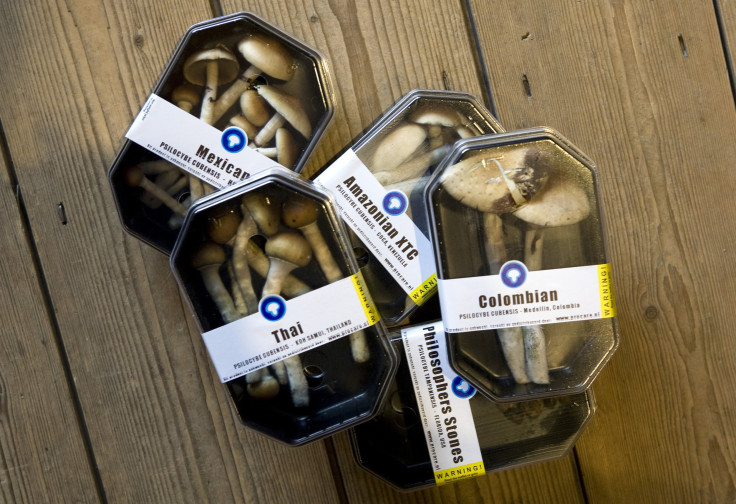Magic Mushrooms: Researchers Urge Caution Over Use Of Psilocybin In Uncontrolled Environments

In recent years, tentative research into psilocybin — the active ingredient in magic mushrooms — has shown that the psychoactive substance may hold the potential to relieve anxiety and depression. However, after carrying out a survey of almost 2,000 people who had consumed psilocybin, a team of researchers from Johns Hopkins University has now urged caution in the use of the drug.
The survey, whose findings were published in the latest edition of the Journal of Psychopharmacology, was designed to study the impact of the so-called “bad trips” — unpleasant experiences associated mostly with the use of psychoactive drugs such as LSD and psilocybin. Of the 1,993 respondents who confessed to having had such negative experiences, 93 percent said they had used psilocybin more than two times.
“Considering both the negative effects and the positive outcomes that respondents sometimes reported, the survey results confirm our view that neither users nor researchers can be cavalier about the risks associated with psilocybin,” study co-author Roland Griffiths, a psychopharmacologist at the Johns Hopkins University School of Medicine who also authored a recent study examining the antidepressive properties of psilocybin in cancer patients, said in a statement.
Nearly 11 percent of the respondents who went through a bad trip said they put themselves or others at risk of physical harm during their bad trip, 2.6 percent said they acted aggressively or violently, while 2.7 percent said they sought medical help.
Sixty-two percent of the participants said the experience was among the top 10 most difficult ones in their lifetime, 39 percent listed it in their top five most difficult experiences, while 11 percent called it their single most difficult experience.
Somewhat paradoxically, though, a third of the participants acknowledged the experience as one of the top five most spiritually significant ones in their lives.
“The counterintuitive finding that extremely difficult experiences can sometimes also be very meaningful experiences is consistent with what we see in our studies with psilocybin — that resolution of a difficult experience, sometimes described as catharsis, often results in positive personal meaning or spiritual significance,” Griffiths said.
The key takeaway, according to the researchers, is that given the potential for psilocybin to cause psychological distress and even enduring psychological problems, the drug should be used only in a “supportive and safe” environment.
“Cultures that have long used psilocybin mushrooms for healing or religious purposes have recognized their potential dangers and have developed corresponding safeguards,” Griffiths said. “They don’t give the mushrooms to just anyone, anytime, without a contained setting and supportive, skillful monitoring.”
© Copyright IBTimes 2025. All rights reserved.






















